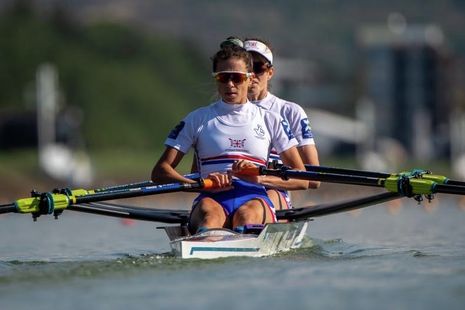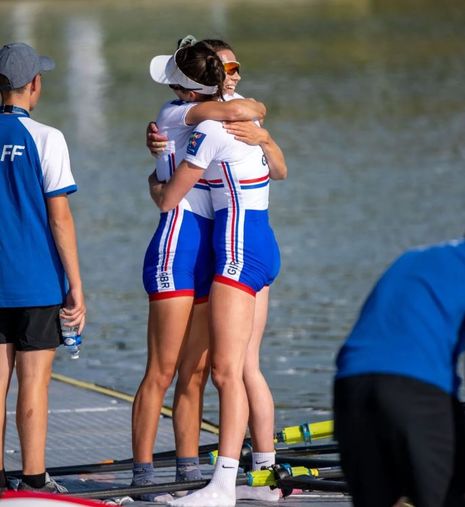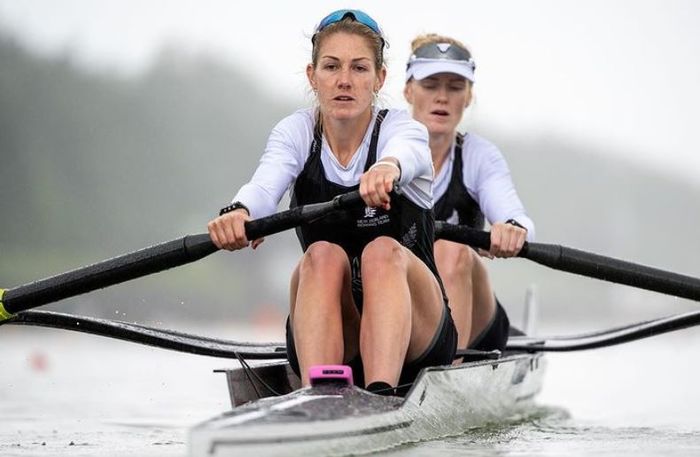Cambridge Olympian: Imogen Grant at the World Championships
Varsity spoke to final year medical student and Olympic rower Imogen Grant before she became world champion at the Rowing World Championships

Imogen Grant is a special athlete. Together with her rowing partner Emily Craig she is the newly crowned World and European champion in the lightweight double sculls. In the single sculls, she holds the world's best time. She has won the Boat Race three times in the Blue Boat. She is also in the final year of a postgraduate medicine degree at Trinity College. I spoke to her about the World Championships, her remarkable career so far, and the Cambridge rowing scene.
Grant was, understandably, feeling excited and 'very confident' about the World Championships. She said last summer's Olympics, where she came fourth by one hundredth of a second, "stoked the fire" for this season's races, and it is clear that this motivation has improved her performance. Grant and Craig were five and a half seconds ahead of silver-medalists France and nine seconds ahead of bronze-medalists Italy at the European Championships in Munich last month, successfully avenging their defeat in Tokyo. The duo repeated this result at this week’s World Championships in Racice, beating an American pair by three seconds to win with a time of 6:54.78.
That Grant is an Olympian and world champion is especially remarkable given she only began rowing at Cambridge as a fresher at Trinity, in 2014. She looks back on college rowing with extremely fond memories, describing the experience of learning to row as incredible, and having providing her with a great start in the sport. She also argues that her rapid ascent to elite performance is more common than you might think, especially on the women's side, where the increased maturity of the athletes allows for the required commitment needed to perform at such an elite level. If becoming an elite athlete within two years of starting rowing (Grant rowed in both the lightweight and reserve boat races in 2016) is not impressive enough, she is also in the final year of a postgraduate medicine degree. How does she combine training for international competitions with the most intense year of Cambridge's most intense degree? Unsurprisingly, she gets this question a lot.

Her life is spent at "100 miles per hour," hurrying between shifts in the hospital and training sessions on the erg or in the water. She told me that a commitment to early nights and sheer stubbornness, as well as great support from the clinical school at Addenbrooke's allows her to do it. This year she is focused on two goals: passing the last year of her degree and preparing herself for the Paris Olympics in 2024. The Paris games will be the final one to include lightweight rowing on the programme. In order to pursue her last chance at an Olympic medal, she won’t be rowing in the boat race. There have been plenty of other sacrifices as well: missed weddings and funerals; a sold May Ball ticket; countless early nights. She shifted her hospital placement to the summer, to leave space free to train for and compete in the European and World Championships.
Nevertheless, she insists that the sacrifice is worth it, with the payoff from winning races and the camaraderie from her teammates helping her push through early morning training sessions. Ultimately, she says these relationships with her teammates are what makes it so enjoyable.
Her advice to anyone thinking of taking up rowing is: "if you enjoy it, do it", and that it’s impossible to be too short to row. Rowing is also open to those who previously didn’t think of themselves as sporty, as Grant did before she came to university. Whilst her definition of sporty is clearly very narrow (she did gymnastics, diving, swimming and martial arts as a child), there is hope yet for all those who were picked last during PE. You might even become World Champion.
 News / Caius mourns its tree-mendous loss23 December 2025
News / Caius mourns its tree-mendous loss23 December 2025 News / Clare Hall spent over £500k opposing busway 24 December 2025
News / Clare Hall spent over £500k opposing busway 24 December 2025 Comment / Yes, I’m brown – but I have more important things to say22 December 2025
Comment / Yes, I’m brown – but I have more important things to say22 December 2025 Comment / The ‘class’ of Cambridge24 December 2025
Comment / The ‘class’ of Cambridge24 December 2025 Interviews / Politics, your own way: Tilly Middlehurst on speaking out21 December 2025
Interviews / Politics, your own way: Tilly Middlehurst on speaking out21 December 2025








